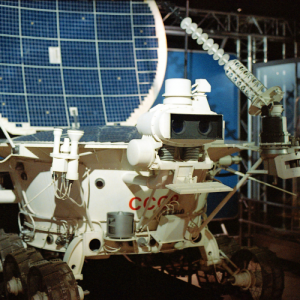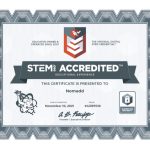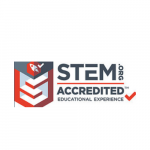
Our Approach
Our mission: Create communities where opportunities don't depend on zip codes.
We exist to eradicate barriers to economic development in low income and disinvested communities. One of those barriers is antiquated learning and teaching models in the 21st century.
A national study by the United States Dept. of Education has shown that S.T.E.M (Science, technology, engineering, and mathematics) programs have not been inclusive to students in the inner city and in marginalized communities. This has contributed to glaring disparities and created a digital divide, a lack of access to STEM careers, income & generational wealth gap, and other major disparities.

Creating change in systemic challenges

Barriers to Economic Development
These are the factors that negatively impact community's growth.
The “school-to-prison pipeline” is a term used to describe the disproportionate tendency of students of color to become involved in the criminal justice system due to harsh school disciplinary policies and practices.
Key Components Include:
Zero-Tolerance Policies
Excessive Use of Suspensions & Expulsions
Discriminatory Disciplinary Practices
School Safety Officers
Impact on Future Opportunities
Juvenile delinquency in low-income areas can be attributed to a complex interplay of various social, economic, and environmental factors. It’s important to note that individual experiences and circumstances vary, and not every young person in a low-income area engages in delinquent behavior. However, several common contributors to juvenile delinquency in such areas include:
Limited Resources
Poverty-Related Stressors
Underfunded Schools
Limited Access to Quality Education
Crime Exposure
Lack of Positive Role Models
Single-Parent Households
Family Instability
Gang Involvement*
Easy Access to Drugs Alcohol*
Antiquated school models, which are traditional and outdated educational approaches, can have several negative effects on students. These effects stem from a misalignment between these models and the evolving needs of students in the 21st century. Some key ways in which antiquated school models impact students include:
Limited Individualization
Focus on Memorization Over Critical Thinking
Inadequate Preparation for Future Careers
Limited Technology Integration
High-Stakes Testing Pressure
Passive Learning & Lack of Engagement
Limited Focus on Social & Emotional Learning
Mismatch with Diverse Learning Styles
Ignoring Cultural Relevance
Shortage of Personalized Learning Opportunities
PROJECT C.A.S.P.E.R
We use unique, custom-built solutions to give us the edge
We work exclusively with different community based entities and public leaders to successfully implement the programs we put together and collect data at every step of the way to gauge the effectiveness and quality assurance of our programs.
Implementing STEM courses and learning experiences for students during the regular school days. This includes the 5 STEM program models.
Implementing STEM courses and learning experiences for out-of-school time (OST) programs such as After-School programs, Summer programs, STEM Saturdays Series, Cohorts, Community Design Projects, and more.
Provide professional development workshop series designed to enhance educator’s understanding of STEM principles, teaching methodologies, and the integration of STEM across our three novel technology industries. This includes a STEM certification.
Provide schools, community centers, libraries and non-profit organizations with the necessary technology, hardware and software to foster high quality STEM curriculum such as SMART Schools, SMART Classrooms, Maker-spaces, Meta-verse/WEB3 environments, Mixed-Reality spaces, Esports Labs, and more.
We train educators and community members on the latest artificial intelligence technology, drone flying, gaming consoles, PC’s and software to prepare them to reciprocate to the community through various entry level programs.
Our Accelerator Focuses On:
Implementing STEM learning acceleration programs that support communities who have been disproportionately impacted by COVID-19 and Learning Loss.
Redesign STEM courses and learning experiences to promote diversity, equity, and inclusion in STEM.
Increase students’ equitable access to STEM courses and experiences, including out-of- school time (OST) programs, STEM-themed schools, career and business creation pathways.
Recruit, prepare, and support a diverse STEM educator workforce, increase educators’ knowledge and expertise in STEM, and equip educators to meet the diverse needs of all students.
Improve student access to materials and equipment needed to support inquiry-based pedagogy and active learning.

Are You Preparing For The Fourth Industrial Revolution (4IR)?
The Fourth Industrial Revolution conceptualizes rapid change to technology, industries, and societal patterns and processes in the 21st century due to increasing interconnectivity and smart automation. Preparing students for future careers in STEM as well as for a workplace that emphasizes independence and flexibility is the major task ahead of anyone interested in education today.
TAKE THE STEM READINESS ASSESSMENT
If your organization is ready to take the steps to prepare your students/community for the future, let us help prepare you by taking our assessment that will gauge your readiness to implement STEM into your organization.
WHY CHOOSE US
STEM FOCUSED
We are dedicated to unlocking the untapped talent we all possess through practical STEM applications.
sAFE HAVEN
Our programs are built out to be safe havens where participants can feel safe and comfortable around people that care about them.
MENTORSHIP
Our programs are designed with a peer to peer mentorship model. We vigorously vet our staff to fit the needs of students of all backgrounds.
REPRESENTATION
We understand how much representation matters, and we make sure that we present great examples of leaders and influencers in the industries we promote.


© 2024 All Rights Reserved.